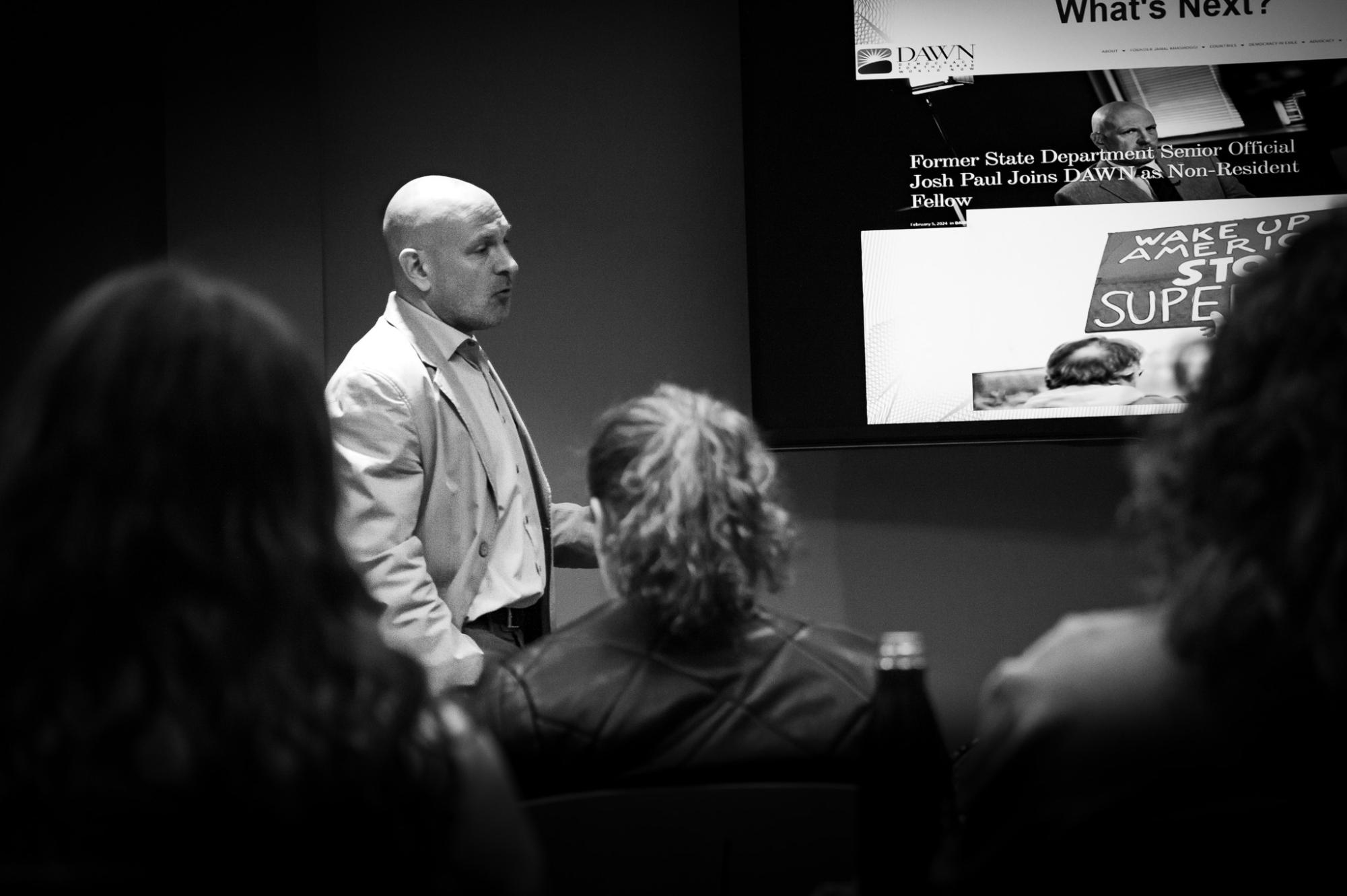Josh Paul, who resigned from the State Department on Oct. 17 in objection to U.S. lethal arms transfers to Israel, will conclude his Grinnell College residency on Friday with the completion of a three-week course on post-conflict resolution, using the Israel-Gaza war as a key case study.
Paul, whose resignation continues to garner extensive media coverage, was sponsored by Barry Driscoll, associate professor in political science. In November, Paul spoke at the College in his first public event post-resignation, explaining to a crowd of 100 people his decision to step down and revealing an insider perspective on U.S. arms transfers. Grinnell was the only college or university that requested he give a talk in the weeks after he posted his resignation letter on LinkedIn, Paul said.
The one-credit class, called “Rebuilding After Conflict,” is the follow-up to that talk. The course includes three units — the first covering power in post-conflict societies, the second covering justice and security sector reform and the third on Gaza, Palestine and Israel. The class will culminate in a scenario-based exercise involving Israel-Palestine, the details of which Paul continues to adjust due to the ongoing nature of the Israel-Gaza war.
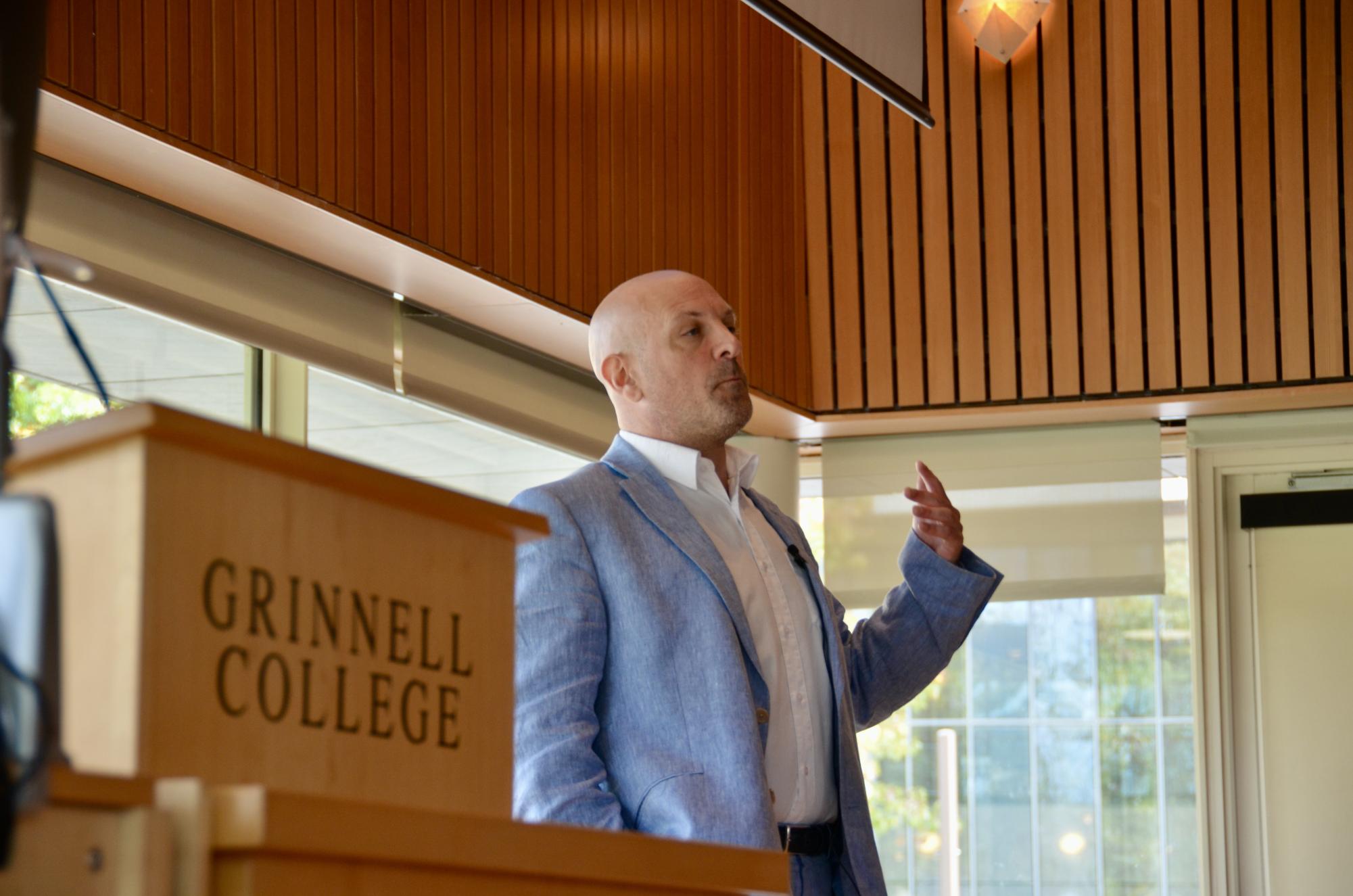
For 11 years, Paul had served in the Bureau of Political-Military Affairs, where he oversaw U.S. security assistance including billions of dollars of lethal arms transfers to U.S.-allied countries.
“Backlash was possible, but I didn’t think it was probable,” Driscoll said. “Far from there being a negative reaction from the administration, what was more notable was the lack of reaction.”
Driscoll added that multiple College offices never responded to Driscoll’s request to fund Paul’s residency.
Despite the perceived controversy, Driscoll said he invited Paul to speak and later teach at the College because he thought Paul’s presence could broaden the conversation about Israel and Gaza happening during the College’s fall semester. Driscoll added that Paul’s international career would benefit students interested in global professions at the College’s rural campus. As part of his stay, Paul spoke last Wednesday about international careers in the U.S. government in a job talk hosted by the Center for Careers, Life and Service.
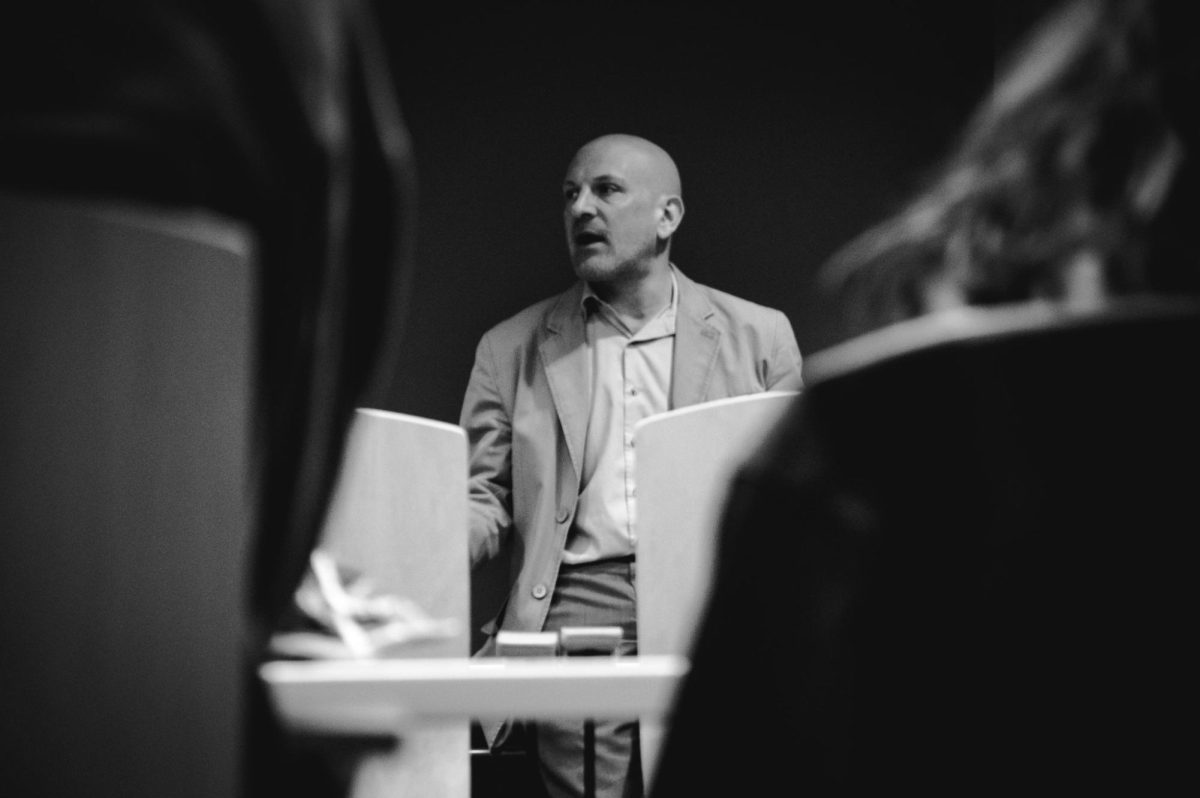
Still, Driscoll said he only sponsored Paul because he is protected by academic tenure. Given that his academic expertise is in global poverty rather than Israel or conflict, Driscoll said sponsoring a figure like Paul introduced a risk that he’d be wading into a field he didn’t understand.
“I think Grinnell was in general more comfortable funding something that wasn’t directly about Israel and Palestine,” Paul said.
Though a third of the course’s content relates to Israel and Palestine, the countries’ names are not featured in the official course description, nor in the majority of the syllabus.
Mariposa Condron `27, a student in the class, said Paul hadn’t talked in depth about the Israel-Gaza war prior to the third week, but that he’d referenced his own experience in the West Bank when discussing broader concepts.
“He’s talking about his experience, which can be kind of harrowing,” she said. Though, she added, Paul has been very open and has answered every question students have asked, “And that’s a really valuable thing.”
Throughout the course, Paul said he’d been challenged by students to reconsider basic assumptions he’d held about U.S. policy motivations and morality. During the class’s first session, he said he found students discussing constructs of power and inclusion in ways less cynical than his generation would have been.
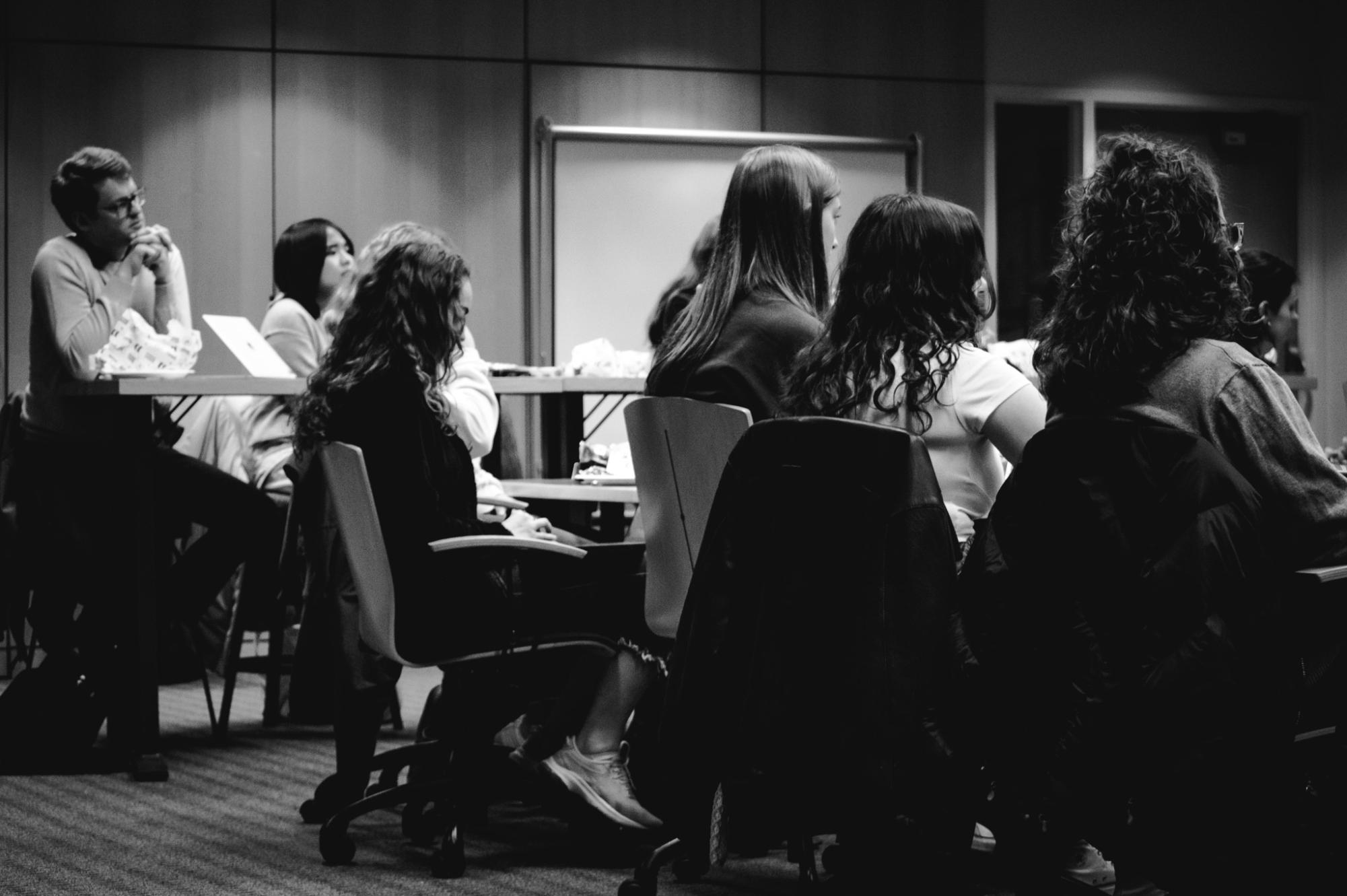
From November to January, the percentage of U.S. adults who believed Israel’s military response in the Gaza Strip had gone too far jumped from 40% to 50%, based on an Associated Press-National Opinion Research Center (AP-NORC) poll with over 1,100 respondents. Notably, the poll showed a 12-point jump in self-identified Republicans who believed Israel’s response had gone too far, from 18% to 33%.
Though the space for debate on Israel and Palestine broadened, Paul said the national dialogue can still be improved.
“It is much harder for people of Arab descent or of Muslim faith to speak up on these issues,” he said, stating that he thinks it’s easier for him to speak publicly about Israel and Gaza as a white, non-Muslim man. He pointed to other higher education institutions such as Brandeis, George Washington University, and Columbia which have suspended chapters of Students for Justice in Palestine (SJP). Grinnell College has not gone to such lengths, but Paul said he thinks it’s important to denounce when higher education institutions limit avenues for free expansion, including suspending SJP chapters.
“We’re at the very beginning of what’s going to be a multiple-year process in recalibrating our relationship with Israel and how we look at the Middle East,” Paul said. “But I think increased debate is the start of that.”
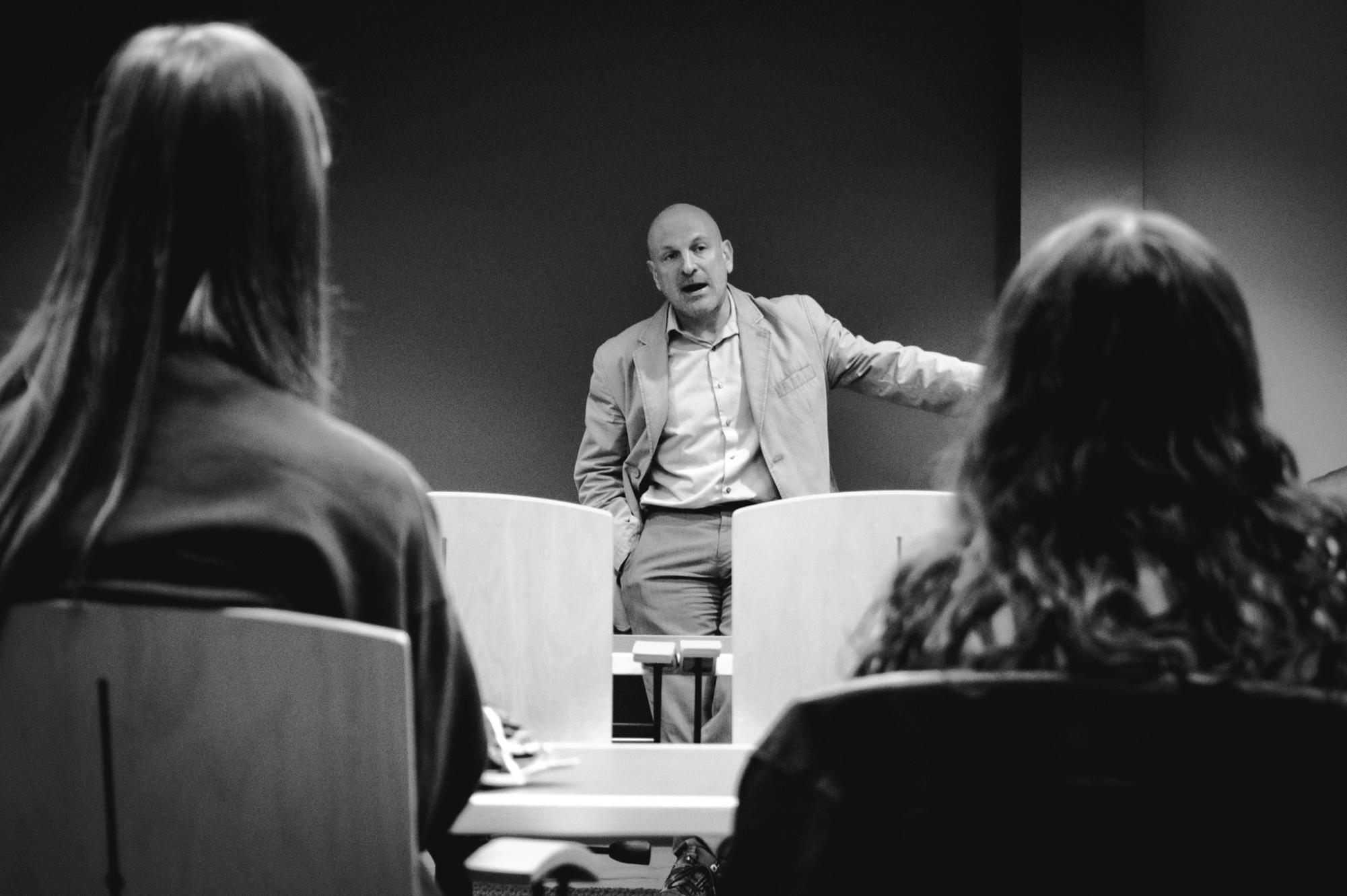
In the coming weeks, Paul will speak at Yale University, Georgetown University and Amherst College.
“I compliment Grinnell for being ahead of the curve,” he said.
Paul’s course prompted The Washington Post to send reporter Hannah Allam to observe the final session.
Following his departure, Paul will join the nonprofit Democracy for the Arab World Now (DAWN), the organization announced in a statement on Feb. 5.

